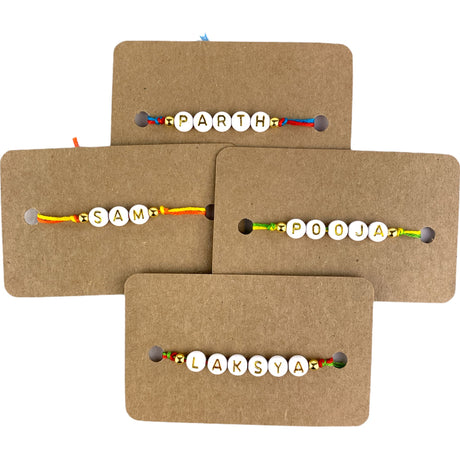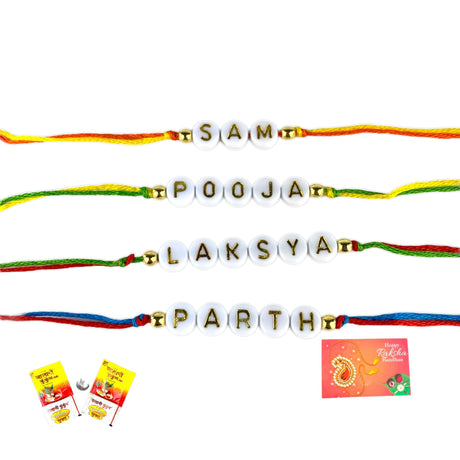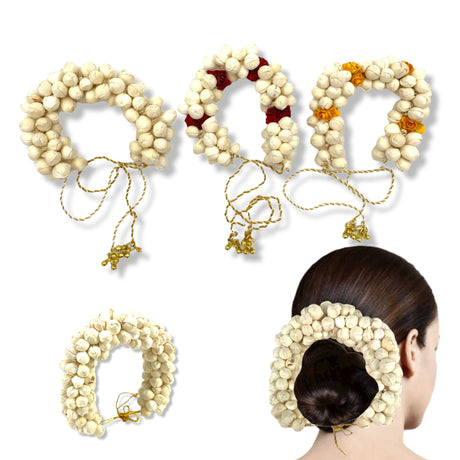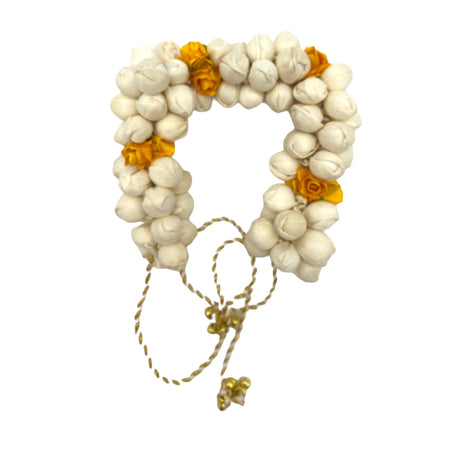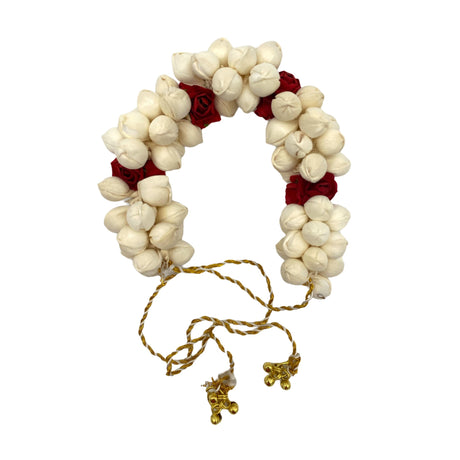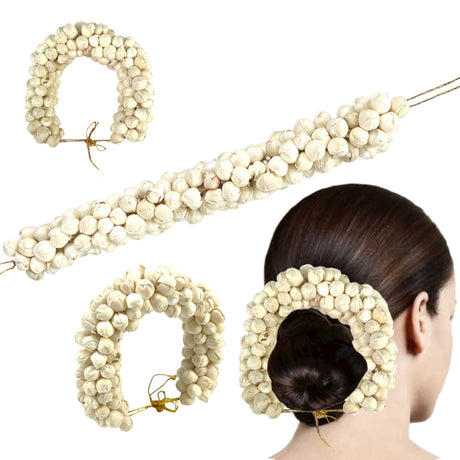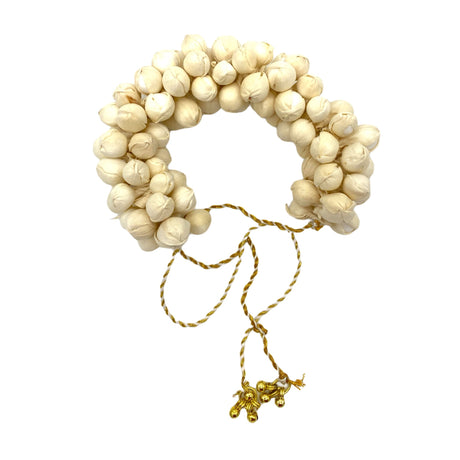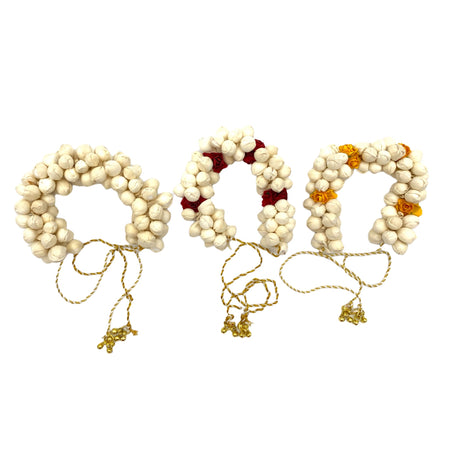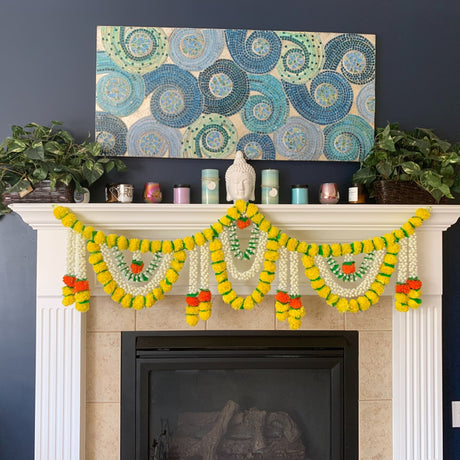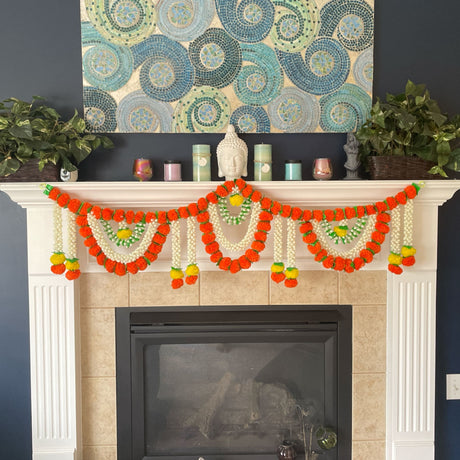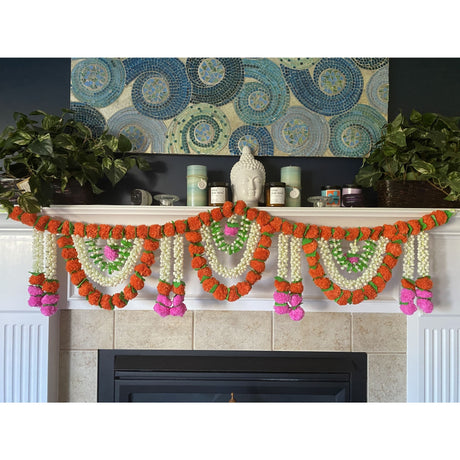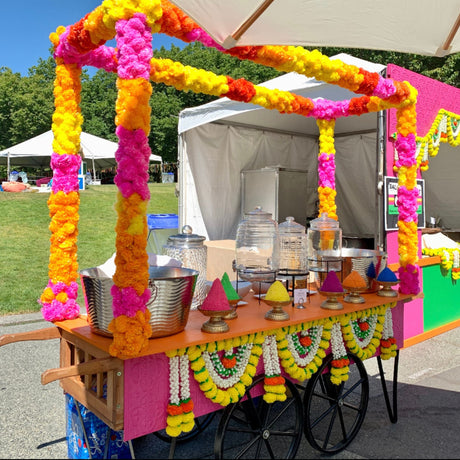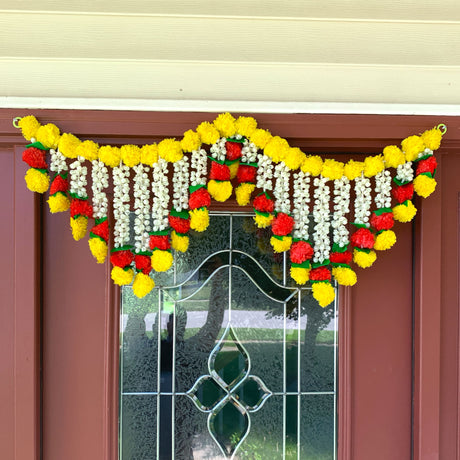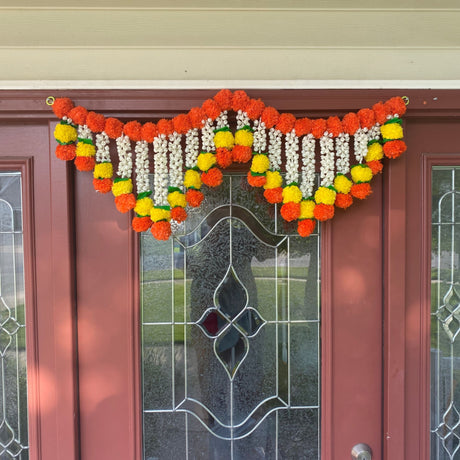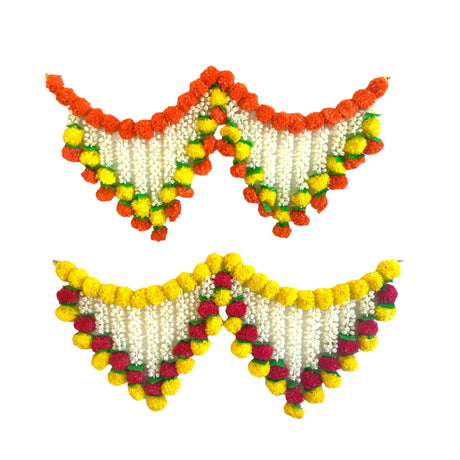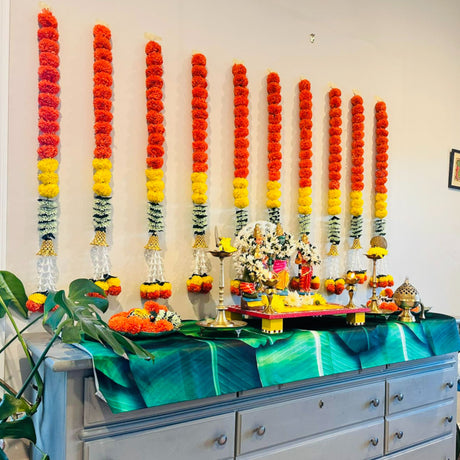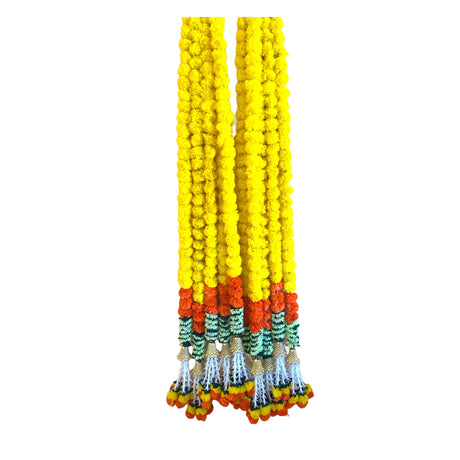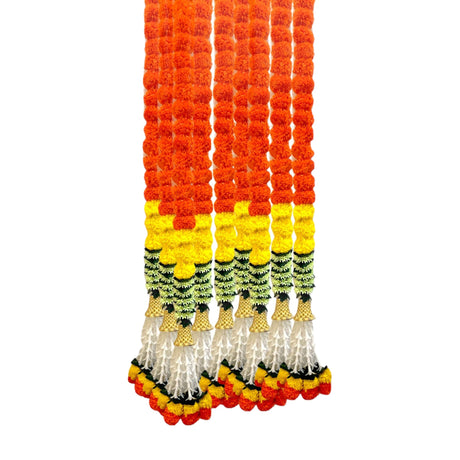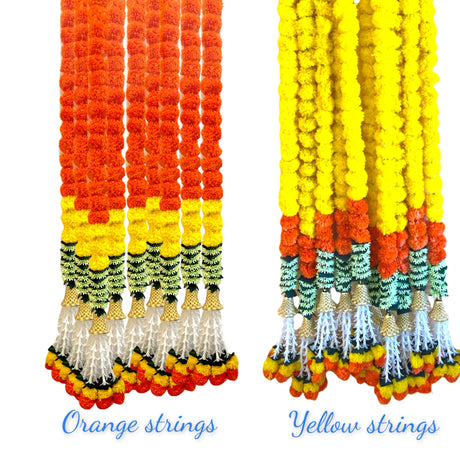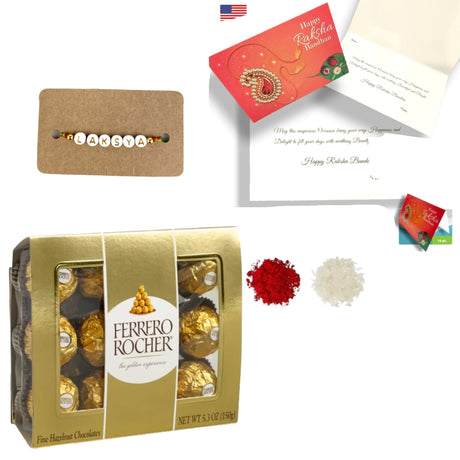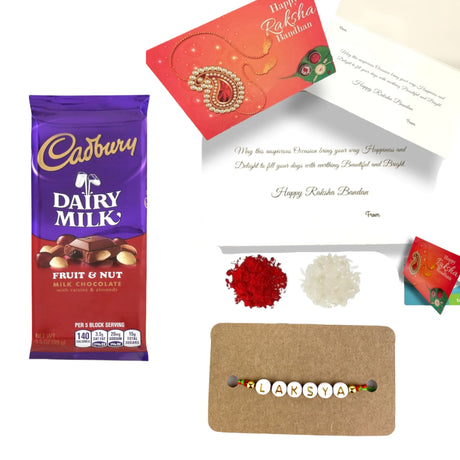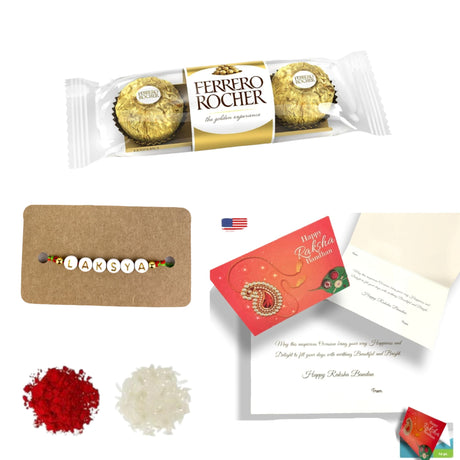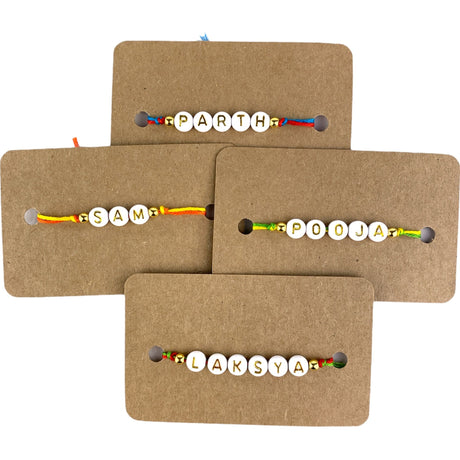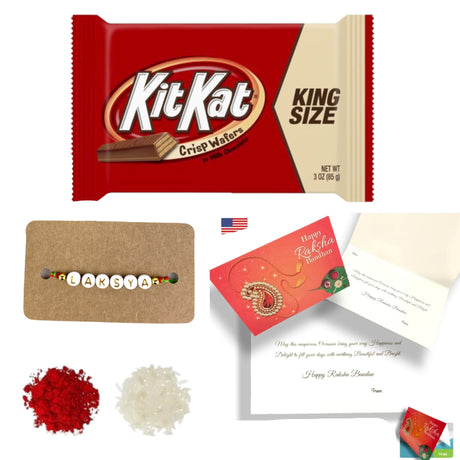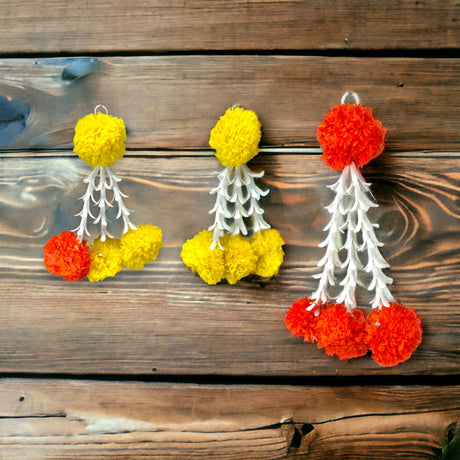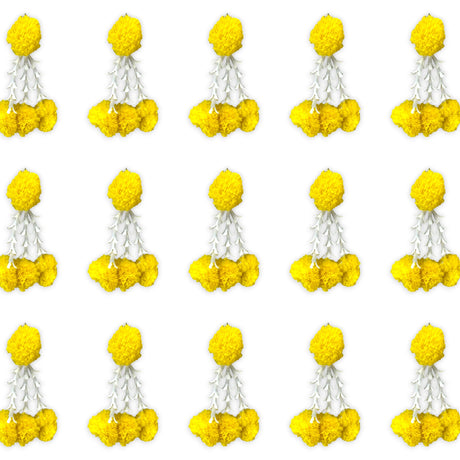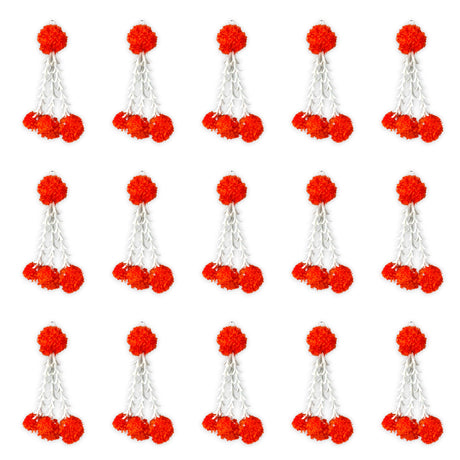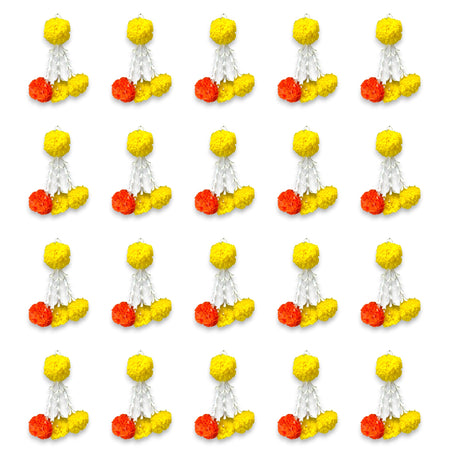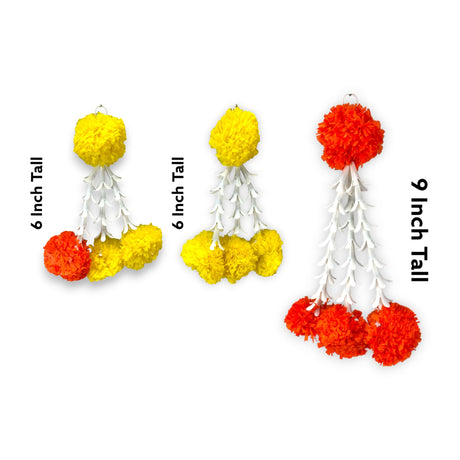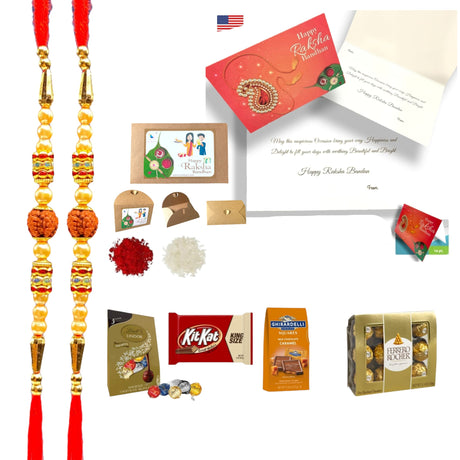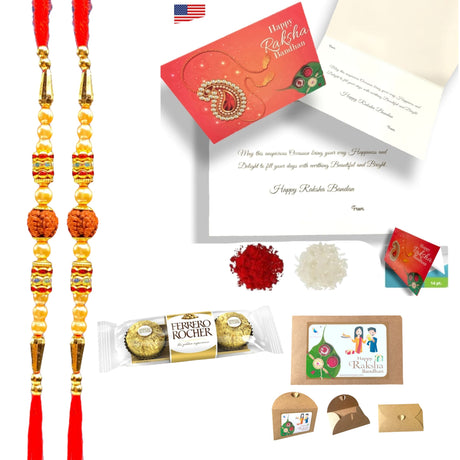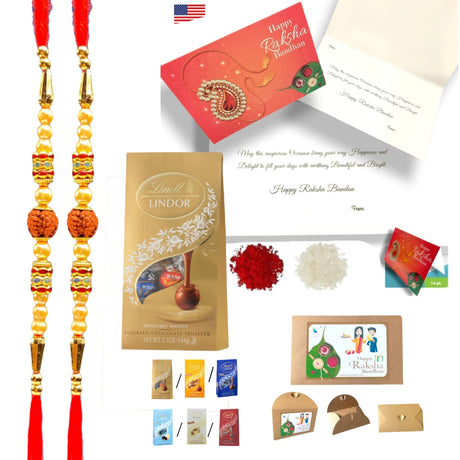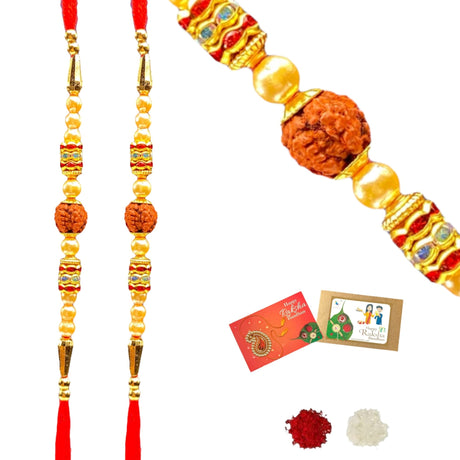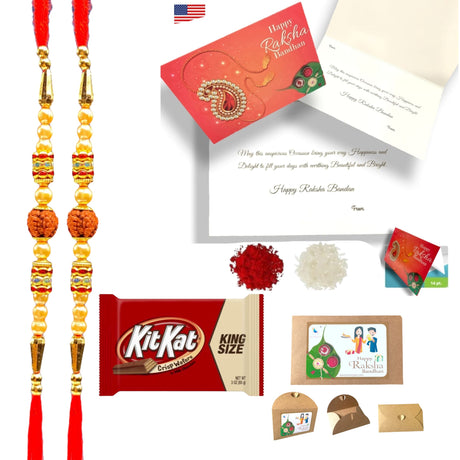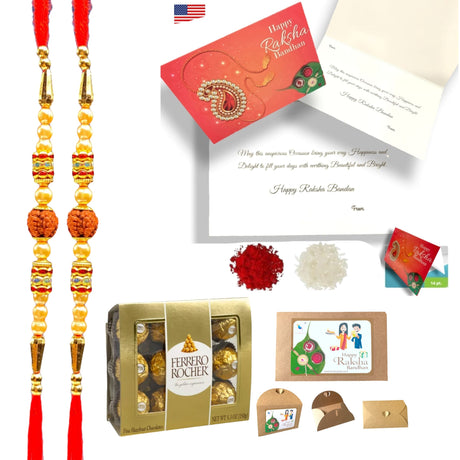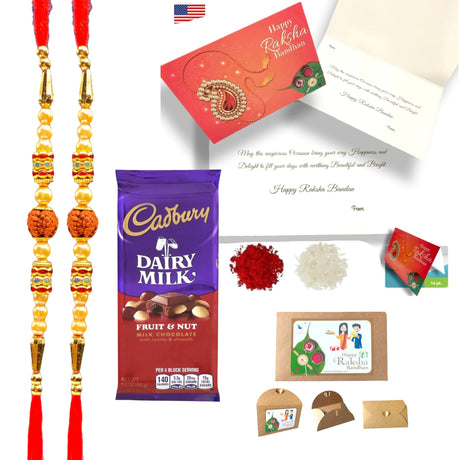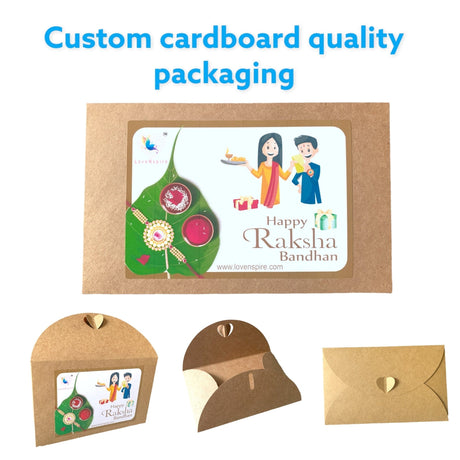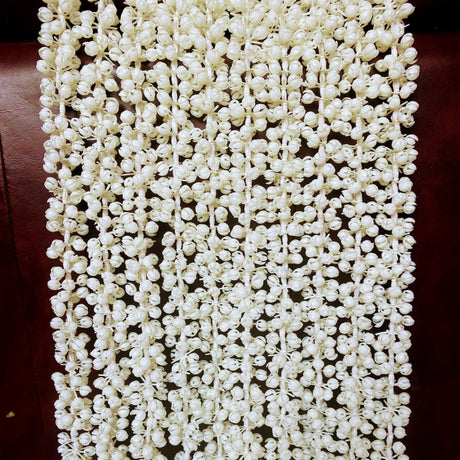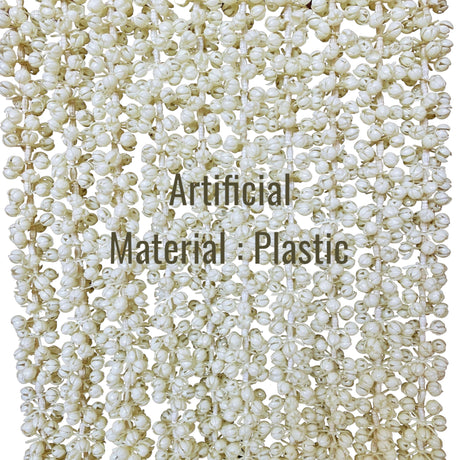Introduction
Karwa Chauth is an important Hindu festival, especially celebrated in Northern and Western India. This lively festival is mainly observed by married women and takes place during the lunar month of Kartika, usually in October or November. The core of Karwa Chauth involves a day-long fast from sunrise to moonrise, during which women pray for the well-being and long life of their husbands or future partners.
To truly grasp the emotional significance of Karwa Chauth, we need to look beyond its customs. This festival is not just about going without food and water; it symbolizes love, devotion, and sacrifice within marriage. Women put in a lot of effort to prepare for this day, often using a beautifully decorated Karwa Chauth Thali Set for their rituals, which adds to the festive atmosphere. These thali sets, such as the designer decorative ones, are essential in making the overall experience more enjoyable.
The traditions that come with Karwa Chauth showcase our cultural heritage and strengthen emotional bonds. From the pre-dawn meal (Sargi) made by mothers-in-law to the evening puja ceremony filled with traditional clothing and Solah Shringar, every part of the festival brings family members closer together. The Sargi often includes gifts like a Karwa Chauth thali that hold special meaning.
For those celebrating their 1st Karwachauth, understanding these deeper aspects can make the experience more meaningful, connecting them with both cultural heritage and emotional significance.
History and Origins of Karwa Chauth
Karwa Chauth has its roots in the rich traditions of the Rajput community. This festival, which is primarily celebrated by married women who fast for the well-being of their husbands, has been observed for centuries.
Historical Significance
The practice of Karwa Chauth can be traced back to a time when Rajput women would fast during their husbands' military campaigns. During periods of war, especially when men were away for long durations, the festival became a way for women to demonstrate their devotion and pray for their husbands' safety. Interestingly, this tradition also coincided with the wheat-sowing season, representing not only a personal hope for prosperity but also a collective prayer for a fruitful harvest.
Evolution Over Time
Over the years, Karwa Chauth has evolved beyond its wartime rituals. It is now widely celebrated across Northern and Western India, transcending its original context. The festival has become an important cultural event that emphasizes marital bonds through acts of love and sacrifice.
This combination of historical significance and emotional depth is what makes Karwa Chauth a tradition that endures. It resonates with both reverence for the past and modern expressions of commitment.
Rituals and Traditions Associated with Karwa Chauth
1. Sargi: The Pre-Dawn Meal
Sargi, a special meal eaten before dawn, marks the start of the fasting period on Karwa Chauth. This meal is prepared by the mother-in-law for her daughter-in-law and is eaten before sunrise. Sargi not only provides the necessary nutrients to sustain women throughout the day-long fast but also holds great emotional and cultural significance.
The contents of Sargi typically include:
- Fruits: To provide natural sugars and hydration.
- Sweets: Such as mathri (savory crackers) and fenia (sweet vermicelli), offering energy and satisfaction.
- Nuts: Rich in proteins and good fats to keep up stamina.
- Traditional dishes: Like parathas or puri, adding variety and sustenance.
Beyond its nutritional aspects, Sargi symbolizes the bond between a mother-in-law and her daughter-in-law. This shared ritual fosters a sense of unity and affection within the family. It is an opportunity for women to connect, exchange blessings, and share stories that emphasize familial solidarity.
In many households, Sargi is more than just food; it's an emotional gesture reflecting care, love, and mutual respect. The preparation and presentation of this meal often involve traditional recipes handed down through generations, adding layers of cultural richness to the practice.
Fasting rules during Karwa Chauth are strict; women abstain from food and water from sunrise until they sight the moon at night. Thus, Sargi becomes an essential part of their day, providing them with the necessary strength to observe their fast while honoring tradition.
This pre-dawn meal encapsulates the essence of Karwa Chauth—dedication, love, and familial bonding—setting the tone for the day's rituals and celebrations.
2. Mehndi Ceremony: A Colorful Tradition
Another significant aspect of Karwa Chauth is the Mehndi Ceremony, where intricate henna designs are applied to the bride's hands and feet. This ceremony is not only visually stunning but also steeped in cultural significance. The application of mehndi is believed to bring good luck and prosperity to the bride's married life.
The Mehndi Ceremony involves vibrant traditions, captivating decor, and thoughtful gift ideas that can make this celebration memorable for the bride and her loved ones.
2. The Evening Puja Ceremony
As the sun sets on Karwa Chauth, the evening puja becomes the focal point of the day's devotion. Women, adorned in traditional dresses for Karwa Chauth, often choose vibrant sarees or lehengas—symbolizing prosperity and marital bliss.
Puja Rituals:
- Karwa (Earthen Pot): Central to the karwa chauth puja is the earthen pot, decorated with beautiful designs. This pot symbolizes peace and prosperity.
- Thali (Plate) Preparation: Each woman prepares a thali containing rice, roli (vermilion), sweets, and a small diya (lamp). These items hold specific meanings—roli for auspiciousness, rice for abundance, and sweets for joy.
- Chanting Prayers: Gathered in a circle, women chant prayers and listen to legends like that of Queen Veeravati. This collective chanting fosters a sense of community and shared purpose.
Significance of Attire:
- Solah Shringar: Women indulge in 'Solah Shringar,' which includes 16 adornments ranging from bangles to henna to signify their marital status and commitment.
- Henna Application: Applying henna is more than decorative; it is believed to bring good fortune and deepen emotional bonds within the family.
- Jasmine Gajra: A popular hair accessory during this time is the jasmine gajra, an artificial flower jewelry that adds a traditional touch to their attire.
The puja ceremony culminates with women looking at the moon through a sieve before breaking their fast. This act symbolizes wading through life's difficulties with grace to eventually attain clarity and blessings.
3. The Role of Henna and Solah Shringar
Henna and Solah Shringar play a significant role in Karwa Chauth, embodying centuries-old traditions that celebrate femininity and commitment.
The Significance of Solah Shringar
Solah Shringar, or the sixteen adornments, hold deep cultural significance. These adornments include items such as bindi, mangalsutra, bangles, anklets, and others, each symbolizing different aspects of womanhood and marital status. The practice of adorning oneself with these items is not merely about physical beauty but also represents a woman's devotion and respect for her marital relationship.
The Tradition of Henna (Mehndi)
Henna (Mehndi) application is another cherished tradition during Karwa Chauth. Intricate henna designs are applied to the hands and feet of women, often by professional artists or family members. The henna's rich color is believed to signify the depth of love between the couple, with darker shades symbolizing stronger bonds. It also serves as an artistic expression of joy and festivity.
These rituals, while deeply rooted in tradition, continue to be embraced in contemporary celebrations, blending timeless customs with modern expressions of love and commitment.
Emotional Dimensions of Karwa Chauth
Love, Devotion, and Sacrifice in Marital Bonds During Karwa Chauth
Fasting during Karwa Chauth is more than just a ritual; it is a profound expression of love, devotion, and sacrifice within the marital bond. The act of refraining from food and water from sunrise until moonrise represents a deep emotional commitment that goes beyond everyday gestures.
Key themes:
- Love: The willingness to endure physical discomfort underscores the immense love that spouses share. It is an unspoken promise to stand by each other through thick and thin.
- Devotion: This day-long fast is a testament to the unwavering devotion that married women have for their husbands. It symbolizes a partnership built on trust, respect, and mutual admiration.
- Sacrifice: By choosing to fast, women highlight the sacrifices inherent in marriage. This act serves as a poignant reminder of the lengths one will go to ensure their partner's well-being.
The story of Queen Veeravati offers a poignant example of these themes. According to legend, Queen Veeravati fasted rigorously for her husband's safety, showcasing her undying loyalty and faith. Her tale resonates deeply with participants, weaving a narrative thread that connects ancient traditions with contemporary practices.
The evening rituals further accentuate these emotional dimensions. As women gather for the puja ceremony, they share tales of their personal journeys and experiences, reinforcing their collective strength and resilience. It's not just about fasting; it's about coming together as a community to celebrate shared values.
Husbands too play an integral role in this emotional tapestry. Their participation in breaking the fast—often by offering the first sip of water—is laden with symbolic meaning. It reflects their appreciation for their wives' efforts and solidifies the bond of love and respect between them.
In recent times, some men have begun observing fasts alongside their wives, reflecting evolving perspectives on gender equality within marital relationships. This shift acknowledges that love and sacrifice are mutual responsibilities, enriching the festival's emotional depth.
Karwa Chauth stands as a powerful testament to the enduring strength of marital bonds. Through love, devotion, and sacrifice, it fosters an environment where relationships are nurtured and celebrated in all their complexity and beauty.
2. Modern Perspectives on Fasting: Feminism, Gender Equality, and Men's Participation in Karwa Chauth Celebrations
Karwa Chauth carries deep emotional resonance, celebrating love and devotion in marital bonds. However, modern perspectives bring fresh interpretations to these traditional practices.
Feminism and Gender Equality Perspectives
- Feminist Views: Some contemporary voices argue that the ritualistic fasting by women may reinforce traditional gender roles. Critics suggest that the expectation for women to fast while men do not reciprocate can be seen as a symbol of unequal marital dynamics.
- Gender Equality: In response to these critiques, many couples have adapted the tradition to reflect more egalitarian values. Men participating in the fast alongside their wives is becoming increasingly common, symbolizing mutual respect and shared commitment.
Evolving Dynamics
- Men's Involvement: Men joining the fast not only challenges traditional views but also strengthens the emotional bond between spouses. This evolving dynamic underscores a partnership based on mutual devotion and equality.
- Shared Rituals: When both partners engage in fasting, it transforms the festival into a shared experience. This collective act of devotion reinforces the marital bond and emphasizes joint commitment to each other's well-being.
These modern interpretations of Karwa Chauth foster a deeper understanding of marital relationships. They highlight that love and devotion are reciprocal, reflecting evolving societal values towards gender equality and mutual respect.
3. Community Support Among Women: The Role of Gatherings During Karwa Chauth Festivals
The communal aspects of Karwa Chauth hold a special place in the hearts of many women, serving as a vital source of emotional support and connection.
Women’s Gatherings:
These gatherings are an opportunity for women to come together, share stories, and offer mutual support.
- Conversations often revolve around personal experiences, family anecdotes, and the challenges faced during fasting.
- The sense of camaraderie helps in alleviating the physical hardships of fasting, reinforcing the emotional resilience required for the day.
Strengthening Bonds:
Through these interactions, women not only strengthen their marital bonds but also forge deeper connections with one another.
- Younger women receive guidance and wisdom from older participants, which fosters a sense of continuity and tradition.
- These shared moments create lasting memories that are cherished long after the festival ends.
Emotional Aspect:
The collective experience enhances the emotional significance of Karwa Chauth. It transforms it from a solitary ritual into a community event filled with laughter, empathy, and shared devotion.
During these gatherings, traditional elements play a significant role. For instance, wearing beautiful bangles is an integral part of the celebration. Women often adorn themselves with 24ct plain glass bangles or silk thread bangles that add to the festive spirit.
Moreover, these events also highlight the importance of preserving our traditions. The bangle organizing box becomes essential in storing these precious items safely while maintaining their sentimental value.
The coming together of women during Karwa Chauth exemplifies how traditional festivals can foster strong community ties. This gathering underscores the festival's role in promoting love, devotion, and support within both marital relationships and wider social circles.
Celebrating Karwa Chauth in 2024: A Guide for Newcomers
1. Date and Timing Considerations for 2024 Celebration
Understanding the timing and schedule of Karwa Chauth is crucial for newcomers to fully engage in its traditions. The festival usually falls in the lunar month of Kartika, coinciding with October or November. For Karva Chauth 2024, the date to mark on your calendar is October 18th.
Key considerations:
- Pre-Dawn Activities: The day begins early with the pre-dawn meal known as Sargi, prepared by the mother-in-law. This meal is essential to sustain women through their fast until moonrise.
- Sunrise and Moonrise Timings: The fast starts at sunrise and concludes upon sighting the moon. It’s important to check local timings for both sunrise and moonrise to adhere strictly to the fasting period.
- Puja Muhurat (Auspicious Timing): Performing the evening puja during an auspicious time enhances the spiritual significance of the ritual. Puja timings can vary based on location, so consulting a reliable panchang (Hindu calendar) is advisable.
- Karva Chauth Kalash: One of the key elements used during puja is the Kalash. This sacred pot symbolizes prosperity and is filled with water, adorned with mango leaves, and covered with coconut.
Planning these activities around precise timings ensures that you honor the tradition authentically, connecting deeply with its cultural roots.
2. Preparing for Your First Karwa Chauth Rituals
Starting your first Karwa Chauth in 2024 can be both exciting and a bit much. Here are some important steps to help you get ready:
- Understand the Rituals: Learn about the main traditions like Sargi, the pre-dawn meal, and the evening puja.
- Gather Essentials: Get things ready such as a Karva Chauth Kalash (water pot), traditional clothing, henna, and puja thali (prayer plate).
- Connect with Family: Ask experienced family members for guidance to make sure you do the rituals correctly.
- Emotional Preparation: Embrace the festival's emotional aspects by reflecting on its themes of love, devotion, and community.
This guide aims to make your preparation process easier while respecting the rich cultural heritage of Karwa Chauth.
Conclusion: Embracing the Emotional Significance of Karwa Chauth Today
Embracing the emotional significance of Karwa Chauth today means recognizing it as a profound celebration of love, devotion, and marital bonds. The festival encapsulates not just ancient rituals but also contemporary values of equality and mutual respect. By participating in Karwa Chauth, couples honor traditions while fostering deeper connections, making it a timeless testament to enduring relationships.












